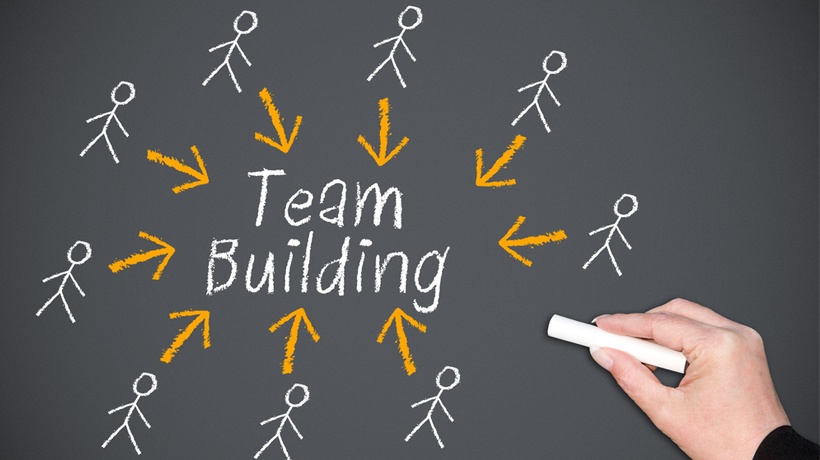How Leadership Shapes Team Development
In fast-paced workplaces, team success isn't just about hitting KPIs; it's about building resilient, motivated teams. A technically sound team can still struggle if morale, communication, and trust are lacking. That's where leadership comes in.
Effective leadership goes beyond managing tasks; it's about nurturing people. Strong leaders guide their teams through every stage of growth, turning individuals into a balanced unit. They foster trust, enable collaboration, promote clarity, and create a culture where continuous growth is not just encouraged but expected. In this article, you will learn about the role of leadership in team development and highlight the key traits that make leaders truly effective.
Key Leadership Qualities For Effective Team Development
Not all leaders are born; some are made through consistent efforts and intentional growth. The right leadership attributes can inspire teams to perform at their best by creating a sense of psychological safety, clarity of purpose, and connection to the bigger picture. These qualities are essential for building resilient, high-performing teams [1].
1. Effective Communication
A leader's ability to clearly communicate vision, expectations, and feedback determines team performance. This goes beyond just speaking well; it includes strong written communication to support collaboration and ensure clarity. Nonverbal cues like tone, body language, and facial expressions also play a powerful role in how messages are communicated, received, and interpreted.
2. Strategic Delegation
Delegation is one of the effective skills that every leader must focus on. A leader cannot do everything on their own; they need their team to take the burden off their shoulders. A leader must know how to utilize the resources effectively so they can use that time for important tasks. When you delegate tasks that align with an individual's interests and skills, the team tends to work with good concentration and effectiveness.
3. Conflict Resolution
Effective conflict resolution is one of the critical roles that involves managing disagreements and disputes so you can find mutually agreeable solutions. When leaders are good at resolving disputes, it fosters trust, open communication, and creates a positive work environment. When leaders skillfully navigate through conflicts, they tend to turn potential challenges into opportunities for growth and positive change.
4. Strategic Thinking
It is important for leaders to be strategic thinkers because it helps them guide their team towards long-term goals by anticipating future challenges and opportunities, effective resource allocation, and fostering a shared vision. If the leader is a strategic thinker, they can inspire collective action, share the team's direction, and drive meaningful outcomes.
5. Giving Constructive Feedback
Giving constructive feedback is a core leadership skill that can help foster a growth-based mindset within the team [2]. In order to develop your team, you need to focus on a culture where feedback is regular, specific, and focused on behavior rather than personality. Delivering feedback which is based on empathy, focuses on both strengths and areas of improvement, and open communication can create a space for growth for your teams.
6. Relationship Building
Earning the trust and respect of your team members is essential to create a motivated and productive work environment, which can happen through relationship building. Leaders must boost morale and create a cooperative environment. When your team feels connected and valued, they tend to be more motivated and productive. Try to know your team members on a personal level, and listen to their concerns so they can come to you when they face any issue.
7. Flexibility And Adaptability
The world is uncertain, and whenever you plan something, it doesn't always go as planned. As a leader, you need to be adaptable and flexible so you can become capable of responding to changing requirements. When leaders keep check on trends, adjust plans when necessary, and make quick decisions, the team also gets inspired and does the same.
8. Time Management Skills
Leaders know how to manage their time effectively. They know how to complete tasks on time, meet project timelines by prioritizing tasks, and allocate better resources whose goals align with the tasks [3]. With good time management skills, you can easily keep up with the demands of the project.
9. Critical Thinking
Critical thinking is a foundational leadership skill which is essential for effective team development [4]. Leaders who use critical thinking can foster a more adaptable, innovative, and productive team environment. This happens by analyzing situations, evaluating information, and encouraging open communication.
Conclusion
To conclude, leadership plays an important role in effective team development. It is not just about having authority, it is about clarity, influence, empathy, and vision. Those leaders are the best who invest in their people, recognize individual strengths, and foster an environment of trust, accountability, and continuous improvement. In a world where change is constant and expectations are high, great leadership isn't optional, it's essential.
References:
[1] How to build a team: Strategies, importance and challenges
[2] How Great Leaders Give Feedback That Improves Performance
[3] How to prioritize tasks and maximize productivity at work
[4] Caveat Auditor: The Role Of Critical Thinking In Modern Business Training









